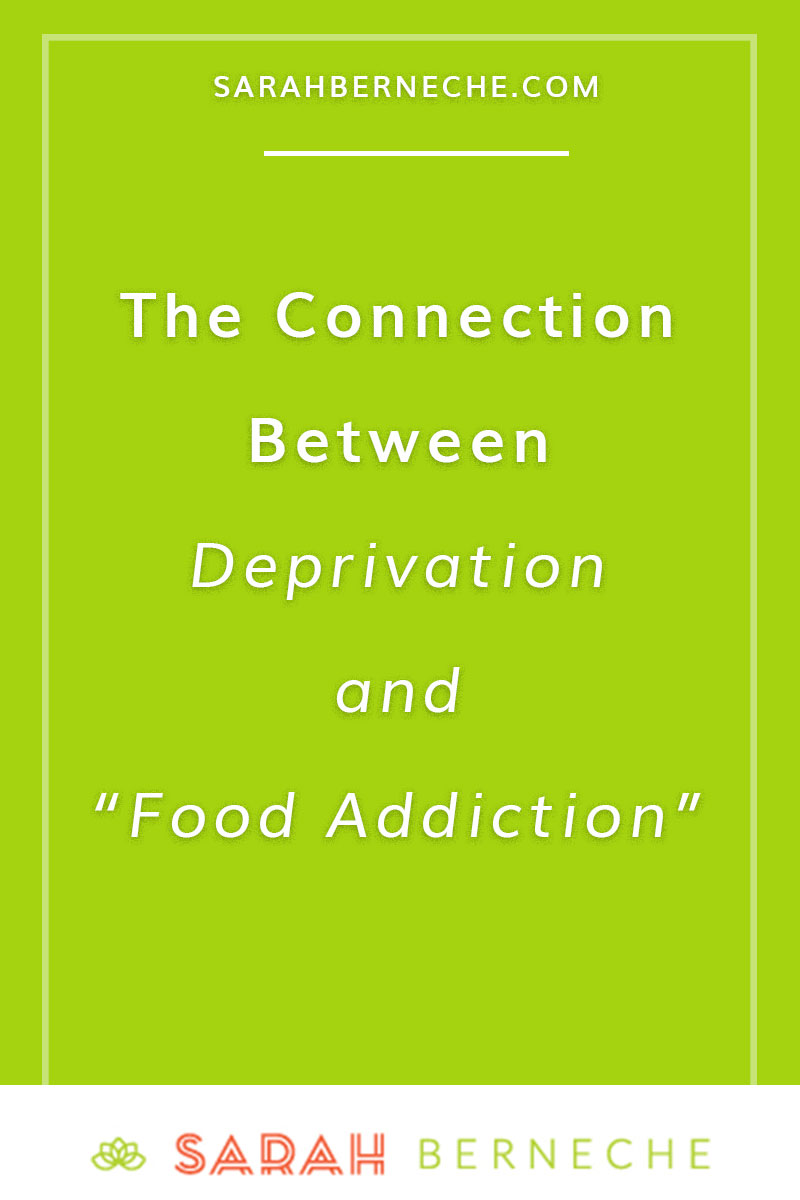“I’m addicted to chocolate.”
“Cheese is my weakness.”
“I can’t stop eating almond butter.”
“Candy is irresistible.”
“Can’t eat just one.”
When we talk about the foods we love, do you ever notice how Puritanical we get? These are all phrases that suggest we can’t control ourselves around the foods we love (and we need to be controlled).
While we can “feel” addicted to foods, clinical food addiction isn’t a thing at this time. Even MSG-laden Chinese take-out, loaded ketchup chips, or Haribo Tangfastics (my personal favourite… please send). Of course, we love these foods, but it is very natural to eat and enjoy delicious foods, not pathological.
In contrast, diet culture and its symptoms, like weight suppression, food restriction, over-exercise, and so on, are pathological and have well-studied psychological and physiological consequences.
Adhering to diet culture feels good because being thin or performing thinness upholds the status quo. Because thinness is idealized, being thin or doing “thin things” — like hitting the gym, drinking green smoothies, or “working on our gut health” — helps us to feel superior. Except dieting requires restriction by its very definition — either physiological or psychological — and scarcity leads us to feel “addicted” to food.
Allowing ourselves to fully enjoy and savour food feels foreign and wrong because we’re rebelling against the very system that tries to keep us in our place.
But by denying diet culture and working toward food freedom, you offer yourself the opportunity to move away from food and body preoccupation.
To reject diet culture’s trappings and dissolve feelings of “addiction”, I’ve isolated 2 types of food deprivation (restriction) that must be worked through:
#1. ABSENCE OF “OVERT” PERMISSION.
Overt permission is superficial and involves three main points: a) eating what you want, b) when you want, c) in the quantity you want.
You may feel that if you “allow” yourself to eat cookies whenever you want, you will never choose another snack, or if you let yourself have the lasagna or macaroni and cheese, you’ll never choose anything other than pasta. But habituation theory suggests otherwise: eventually, you’ll tire of these foods (yes, even of your favourite foods!) and opt for something else. Humans are hard-wired for variety, so even if it seems this way, it’s because you’ve been living within a restrictive framework — not because these foods are inherently addictive. Remember that bingeing, overeating, and other “problematic” behaviours are reactions to restriction, not to permission.
In short: connect with your internal wisdom and let yourself eat what it is you desire, eat to satisfaction (don’t go hungry or intentionally under-eat), and allow yourself to eat when you want (whether you’re hungry again two hours after breakfast, want a snack at 9 pm, or feel like having popcorn with the movie you’re watching.)
#2. ABSENCE OF “AUTHENTIC” PERMISSION.
Authentic (and unconditional) permission goes deeper. In my experience, it also takes more practice and time to grasp and implement.
Let’s say you’re eating what you want, when you want, and in the amount you desire. Yet you’re still bingeing or generally feel out of control around and obsessed with food.
Let’s talk about how you’re eating and what you’re thinking.
Many people who believe they are practicing unconditional permission are actually self-sabotaging. Eating in secret — hiding food, eating only certain foods when you’re alone, or hiding wrappers or containers — is a subtle form of restriction.
And even though you may intellectually know you are allowed to eat what you want, it takes time for your emotions to catch up. This may explain why you still feel guilt and/or shame when eating certain foods, for you believe you should not be eating them. With time and practice (and help from me, if you like!), you can begin to integrate the lessons and eat without shame or guilt.
Let me know in the comments: do you engage in overt or subtle forms of restriction?

[…] (That Will Keep You Diet-Binge Cycling) Emotional Eating Decoding: What Am I Really Hungry For? Food Addiction and Intuitive Eating: Are you “addicted” to food or just deprived? I’m Doing This Intuitive Eating Thing — So Why Do I Keep […]